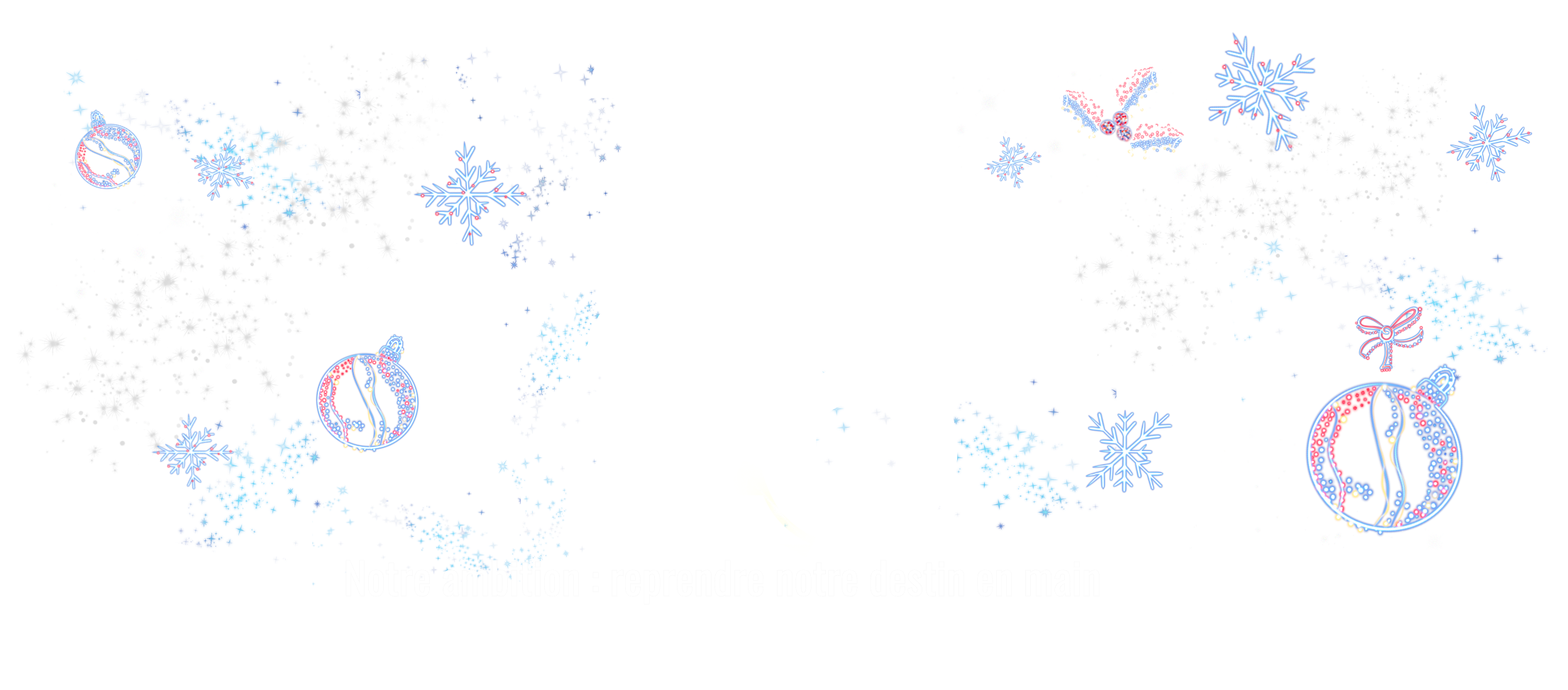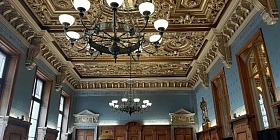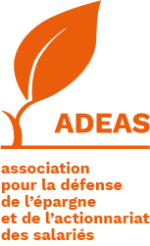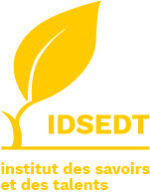L'organisation d'Orange en zone MEA à l'assaut du Kilimandjaro
Rédigé par Marc Arnold le . Publié dans Europe et International.
[French version here/English version below]
Dans le cadre du Comité de Groupe Monde d'Orange des 14, 15 et 16 mai 2019 à Paris, la Direction du Groupe a inscrit à l'ordre du jour le point sur le programme Kilimandjaro, dossier présenté par Alioune Ndiaye, Directeur général exécutif d'Orange Afrique & Moyen-Orient, et François-Xavier Rey, Directeur du programme Kilimandjaro et Directeur adjoint des Ressources Humaines Afrique & Moyen-Orient.
Ce point "Kilimandjaro" fait suite au dossier "Opérations Afrique & Moyen-Orient et programme ANO (Africa Network Outsourcing)" présenté à ce même Comité de Groupe Monde, et la meilleure illustration en sera faite par Alioune Ndiaye en introduction, à savoir que Stéphane Richard veut par ce programme de transformation (suite logique de "Babel") se doter des moyens pour trouver un "gisement" équivalent à Orange Money.
Les objectfis de Kilimandjaro se concentrent sur une cible de position d'opérateur "multi-services", car en 2050, pas moins de 2.5 milliards d'habitants seront africains, soit 1 sur 4, avec un Produit Intérieur Brut (PIB) de 10% du PIB mondial, sans oublier qu'à ce jour la zone MEA participe déjà à plus de 50% de la croissance du Groupe Orange.
Autres chiffres à garder à l'esprit: 1 Africain sur 2 dispose d'un mobile, 660 millions de smartphones en 2020, +65% annuels de croissance du trafic data mobile, 30% de la population seulement utilise Internet en Afrique, versus 75% chez nous en Europe !
Trois phases sont à distinguer dans ce programme:
- Dès 2015 et 2016, le projet "Babel" s'attelle à regrouper les filiales et les participations Afrique & Moyen-Orient sous la holding Orange Afrique & Moyen-orient pour une meilleure lisibilité du Groupe en Afrique.
- Intervient ensuite le démarrage de la phase 1 de Kilimandjaro, et notre modèle opérationnel doit s'adapter en 2017 et 2018 au continent africain, et identifie 5 chantiers prioritaires sur la zone Afrique & Moyen-Orient.
- Enfin, la phase 2 de Kilimandjaro cible une transformation accélérée dès fin 2018 et doit aboutir au plus tard en 2025 à ce statut d'opérateur multi-services, grâce à un ancrage africain affirmé et reconnu de tous.
Plusieurs axes stratégiques doivent permettre à Kilimandjaro d'équilibrer objectifs et moyens. En termes d'objectifs, il apparaît impératif de déployer des modèles novateurs et adaptés aux enjeux du continent africain (partenariat avec des Etats, mais aussi avec les GAFA et les acteurs chinois majeurs).
Kilimandjaro et ses 5 chantiers principaux doivent confirmer la pertinence de cette orientation du Groupe Orange:
- Adapter notre modèle d'affaires aux enjeux du continent africain (CEO sponsor: Yasser Shaker - Egypte)
- Faire évoluer notre modèle d'innovation pour plus d'agilité et d'efficience (CEO sponsor: Thierry Millet - Tunisie)
- Attirer les talents et compétences issus des pays africains (CEO sponsor: Ben Cheik Haidara - Burkina Faso)
- Renforcer notre ancrage régional (CEO sponsor: G. Lokossou, République Démocratique du Congo - A. Kane, Sierra Leone)
- Adapter le fonctionnement et la gouvernance de la holding mixte vis-à-vis des filiales et du Groupe (CEO sponsor: Sékou Drame - Sénégal)
Dans ce contexte de transformation, pas moins de 30 actions déjà engagées sur ces chantiers et des premières réalisations sont déjà visibles. A ce titre, trois exemples sont donnés. Pour affirmer notre ancrage régional, Orange a déjà participé en novembre 2018 au salon africain majeur des télécommunications AfricaCom, équivalent à celui de Barcelone pour l'Europe. Sur le sujet d'adaptation des modes oéprationnels, un nouvel ERP (Enterprise Resource Planning) a été mis en place au sein d'Orange Sierra Leone, générant 3.7 Mds d'€ d'économie. Enfin, pour développer l'innovation locale en Afrique, les technocentres de la zone africaine sont rattachés à Orange Afrique & Moyen-Orient, et non plus à la division TGI (Technical & Global Innovation).
Enfin, la communication sur le programme Kilimandjaro précise que le projet doit réussir si tout le monde sait ce qu'est le projet et en parle de manière cohérente et partagée. A ce titre, Alioune Ndiaye respecte un "wording" unique, organise des interview radio et/ou vidéo avec un message simple et très clair (français & anglais).
Le siège africain d'Orange Afrique & Moyen-Orient est installé à Casablanca sur l'emplacement de l'ancien aéroport d'Anfa, une zone de 350 hectares, disposant d'une excellente connectivité pour les transports. Dans la tour CFC (Casablance Finance City), Orange Afrique & Moyen-Orient bénéficiera d'environ 900 m2 d'espaces aménageables en bureaux et salles de réunion. Alioune Ndiaye et ses équipes doivent s'y installer dans quelques mois.
Analyse des membres du Comité de Groupe Monde et de la CFE-CGC Orange:
Malgré ces échanges clairs et transparents avec Alioune Ndiaye, des inquiétudes persistent pour nos représentants africains, notamment en République Démocratique du Congo, au Sénégal, en Côte d'Ivoire et au Mali.
En effet, les membres du Comité demandent à ce que les mêmes évènements GNOC/ANO ne se reproduisent pas sur le projet Kilimandjaro. En réponse et à titre d'exemple, Alioune Ndiaye propose d'organiser un rendez-vous avec kles équipes techniques qui travaillent sur le projet GNOC/ANO, afin de détailler le bilan des performances, mais aussi le bilan des mobilités (RH) telles que traitées par le partenaire Huawei. Le Directeur général exécutif d'Orange Afrique & Moyen-Orient promet une forte transparence de sa part tout au long du projet Kilimandjaro.
Le Comité de Groupe Monde et ses membres suivront de près l'évolution de Kilimandjaro, parmi les autres dossiers récurrents et sensibles (GNOC/ANO entre autres) en Afrique.
[English version]
As part of the Orange World Works Council meeting in Paris on May 14th, 15th and 16th, 2019, the Group's Management has included the item on the Kilimandjaro program on the agenda, presented by Alioune Ndiaye, Executive Director General of Orange Africa & Middle East, and François-Xavier Rey, Kilimanjaro Program Director and Deputy Director of Human Resources Africa & Middle East.
This "Kilimanjaro" item follows the "Africa & Middle East Operations and Africa Network Outsourcing" program presented to the same World Works Council, and the best illustration will be made by Alioune Ndiaye in the introduction, namely that Stéphane Richard wants by this program of transformation (logical continuation of "Babel") to equip himself to find a "deposit" equivalent to Orange Money.
Kilimanjaro's objections focus on a multi-service operator position target, because in 2050, no less than 2.5 billion people will be African, or 1 in 4, with a Gross Domestic Product (GDP) of 10 % of global GDP, not to mention that to date the MEA zone already accounts for more than 50% of Orange Group's growth.
Other figures to keep in mind: 1 in 2 Africans have a mobile, 660 million smartphones in 2020, + 65% annual growth of mobile data traffic, 30% of the population only uses the Internet in Africa, versus 75 % at home in Europe !
Three phases are to be distinguished in this program:
- As of 2015 and 2016, the "Babel" project is working to consolidate the subsidiaries and holdings in Africa & Middle East under the holding company Orange Africa & Middle East for better legibility of the Group in Africa.
- Then comes the start of phase 1 of Kilimanjaro, and our operational model must adapt in 2017 and 2018 to the African continent, and identifies 5 priority projects in the Africa & Middle East region.
- Finally, phase 2 of Kilimanjaro targets an accelerated transformation by the end of 2018 and must end in 2025 at the latest in this status of multi-service operator, thanks to an affirmed and recognized African anchorage of all.
Several strategic axes must allow Kilimanjaro to balance objectives and means. In terms of objectives, it seems imperative to deploy innovative models adapted to the challenges of the African continent (partnership with states, but also with GAFA and major Chinese actors).
Kilimanjaro and its five main projects must confirm the relevance of this orientation of the Orange Group:
- Adapt our business model to the challenges of the African continent (CEO sponsor: Yasser Shaker - Egypt)
- Develop our innovation model for greater agility and efficiency (CEO sponsor: Thierry Millet - Tunisia)
- Attract talents and skills from African countries (CEO sponsor: Ben Cheik Haidara - Burkina Faso)
- Strengthening our regional roots (CEO sponsor: G. Lokossou, Democratic Republic of Congo - A. Kane, Sierra Leone)
- Adpater le fonctionnement et la gouvernance de la holding mixte vis-à-vis des filiales et du Groupe (CEO sponsor: Sékou Drame - Senegal)
In this context of transformation, no less than 30 actions already undertaken on these sites and first achievements are already visible. As such, three examples are given. To affirm our regional roots, Orange has already participated in November 2018 at AfricaCom's major African telecommunication exhibition, equivalent to that of Barcelona for Europe. On the topic of adaptation of the oeprational modes, a new ERP (Enterprise Resource Planning) was set up within Orange Sierra Leone, generating € 3.7 billion in savings. Finally, to develop local innovation in Africa, the technocentres of the African zone are attached to Orange Africa & Middle East, and no longer to the TGI Division (Technical & Global Innovation).
Finally, the Kilimanjaro program communication states that the project must succeed if everyone knows what the project is and speaks about it in a coherent and shared way. As such, Alioune Ndiaye respects a unique "wording", organizes radio and / or video interviews with a simple and very clear message (French & English).
Orange Africa & Middle East's African headquarters are located in Casablanca on the site of the former Anfa airport, a 350-hectare zone, with excellent transport connectivity. In the CFC tower (Casablance Finance City), Orange Africa & Middle East will benefit from approximately 900 m2 of convertible space in offices and meeting rooms. Alioune Ndiaye and her teams have to settle there in a few months.
Analysis of the members of the World Group Committee and the CFE-CGC Orange:
Despite these clear and transparent exchanges with Alioune Ndiaye, concerns remain for our African representatives, particularly in the Democratic Republic of Congo, Senegal, Ivory Coast and Mali.
Indeed, the members of the Committee demand that the same GNOC / ANO events do not occur on the Kilimanjaro project. In response and as an example, Alioune Ndiaye proposes to organize an appointment with the technical teams working on the GNOC / ANO project, in order to detail the performance report, but also the record of the mobilities (HR) such than processed by the partner Huawei. The Executive Director General of Orange Africa & Middle East promises strong transparency throughout the Kilimanjaro project.
The World Works Council and its members will closely monitor the evolution of Kilimanjaro, among the other recurring and sensitive issues (GNOC / ANO among others) in Africa.
Conditions de Travail et Santé Economie et Réglementation des Télécoms Emploi & Métiers Formation Professionnelle CSEC UES Orange Comité Groupe France Comité Groupe Monde Orange Business Services Orange Bank










